School of Social Work News
Pages
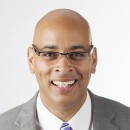 William Elliott Contributes Essay on Building Wealth for New Aspen Institute Book
William Elliott Contributes Essay on Building Wealth for New Aspen Institute BookProfessor William Elliott’s essay is included in the new book “Future of Building Wealth: Brief Essays on the Best Ideas to Build Wealth - for Everyone” which was published by The Aspen Institute Financial Security Program in partnership with the Federal Reserve Bank of St. Louis. The book provides policymakers and financial leaders with the tools, resources and innovative ideas to pave the way for economic growth and prosperity for all American families.
- October 4, 2021
- Learn more »
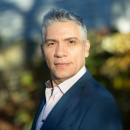 Realm of the Dead - Using Art in Social Work Education and Practice
Realm of the Dead - Using Art in Social Work Education and PracticeEach piece of vintage luggage in the installation performance tells a piece of Rogério Pinto's story. Crafted into sculptures, suitcases and trunks recount a period when he was consumed by the loss of his three-year-old sister Marília and his family's struggles after her death.
Born and raised in Brazil, Pinto, a professor and associate dean for research and innovation at the University of Michigan School of Social Work, found a way through the visual and performing arts to confront a painful past, find peace and forgiveness. He created an award-winning play entitled "Marília," readapted now as a new art project called "Realm of the Dead."
This community-based art initiative invites the audience to dive into complex subjects from death and parental molestation to ethnicity, race, gender and other issues. It premieres in October at the U-M School of Social Work, which celebrates its centennial. "Realm of the Dead" is an autobiographical project that uses self-referential theater as a vehicle for self-healing and advocacy. Based on pedagogy and theater of the oppressed, it intends to advance social work research and practice, as tools of critical reflection, personal growth and advocacy.
- September 29, 2021
- Learn more »
- View the 2021 Centennial Homecoming Festivities
Last week, we hosted an in-person (and virtually accessible) Centennial Homecoming and Reunion weekend. This was our very first in-person alumni event since the pandemic started over 18 months ago, and it was a lot of fun to see so many wonderful friends! The feedback we received from guests has been uplifting and inspiring. One alum stated that the weekend was like “chicken soup for the soul”. Thanks to everyone who joined us virtually and in person.
Treating with Equality: Supporting LGBTQIA2S+ Individuals in Health Care Settings
All Class Reunion Lunch
- September 29, 2021
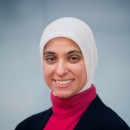 Fatima Salman Talks with WDET About How 9/11 Changed Life in America for American Muslims
Fatima Salman Talks with WDET About How 9/11 Changed Life in America for American MuslimsFatima Salman, SSW Engage Program Manager was recently interviewed on WDET’s All Things Considered program about how for American Muslims, 9/11 changed life in America. Fatima said, “It wasn’t just worrying about our country, or worrying that that happened to our country, but it was also the worry of what’s going to happen to us as a community in America.”
- September 15, 2021
- Learn more »
- PhD Student Charles Williams II Encourages Vaccination in Michigan HHS Video
PhD student Charles Williams II is featured in a video from the Michigan Department of Health and Human Services addressing vaccine hesitancy and encouraging the COVID-19 vaccination. Williams, who is pastor of the Historic King Solomon Baptist Church, says “There is no invincibility to COVID-19. If it hits you, and it hits you wrong, you’re gone.”
- September 13, 2021
- Watch the video »
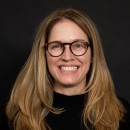 Shawna Lee Receives the Diversity and Inclusion in Men in Families Research Article Award
Shawna Lee Receives the Diversity and Inclusion in Men in Families Research Article AwardAssociate Professor Shawna Lee and Joyce Lee, PhD ‘21, are coauthors of “Longitudinal relations between coparenting and father engagement in low-income residential and nonresidential father families”, published in the Journal of Family Psychology. Their paper was awarded the Diversity and Inclusion in Men in Families Research Article Award from the National Council on Family Relations and was recognized for its contribution to advancing the science on the role of men in families.
- August 17, 2021
- MSW Student Stacey Stevens Awarded Anti-Racism Grant to Support Detroit’s Zone 8
MSW Student Stacey Stevens has received a summer research grant from U-M’s Anti-Racism Collaborative for her community-based research project, 48208 Lives. Stevens created the project in partnership with Yusef Bunchy Shakur, MSW ‘19, who is the director of the Mama Akua Community House in Detroit, Zone 8, and Pedro Coracides, an MSW student at Wayne State University.
The project focuses on Zone 8, a predominantly Black neighborhood in Detroit, which takes its name from its zip code. Zone 8 experiences many of the inequalities that ravaged all of Detroit in the past decades — unemployment, addiction, persistent poverty, lack of affordable housing — in hyper-focused ways. The high percentage of both empty apartments and rental properties make it difficult to foster a sense of community. Despite these many challenges, residents have fostered a sense of community out of survival. Many critical institutions, including local schools and grocery stores, have closed, which has made this community more vulnerable socially, politically and economically.
“This is a neighborhood that is under constant attack from gentrification from outsiders,” said Stevens. “It is only now with its proximity to Midtown and Downtown Detroit, that this neighborhood is being ‘valued’ and recolonized.”
According to project documentation, 48208 Lives seeks to “connect, develop and nurture emergent leadership from Zone 8 to create a racially and socially just vision for a revitalized Detroit without displacement or continued disinvestment.” To do this, the project will develop an asset map, marking all the human resources available to residents. “We are hopeful that this project will lay a foundation for neighborhood residents to support their visions for a vibrant community,” said Stevens.
“One of the things I have learned thus far in our planning is how there is no one-size-fits-all approach to doing this work. I live about two miles away from the neighborhood we are working in. There is such a drastic difference in how my community looks and the resources most folks in my community have compared to Zone 8,” said Coracides. “I think that is the one thing I hope to learn through this work: what does it look like to replicate this work in different communities around Metro Detroit in light of the unique needs and resources available to each community?”
“The support will allow us to navigate some of the challenges on the ground and to meet our goal by connecting us with residents and positioning us to amplify their voices,” said Shakur. “As a graduate of the School of Social Work, this opportunity to work with like-valued people is inspiring. Developing a research framework that is resident-driven and working professionally in a team capacity doesn’t necessarily happen post graduation.”
- August 16, 2021
- TIPPS — Trauma-Informed Program and Practices for Schools — Unveils New Website
TIPPS — The School of Social Work’s Trauma-Informed Program and Practices for Schools — has launched a new website. Learn more about how TIPPS translates research into strategies to help students develop their potential and create safe, nurturing and inclusive learning environments. Professor Todd Herrenkohl, TIPP’s director and principal investigator, leads an interdisciplinary team of faculty, students and community partners.
- July 22, 2021
- Learn more »
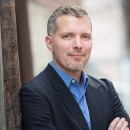 Luke Shaefer Discusses New Monthly Child Tax Credit
Luke Shaefer Discusses New Monthly Child Tax CreditProfessor Luke Shaefer spoke with the New York Times about how the new monthly child tax credit could increase economic stability for families. "When we load up so much of our aid in an annual big refund, it means so many of our families are going into the red by the end of the year," Professor Shaefer said. "We used to think about poverty in the United States as static - your income is below the poverty line - but people's lives are very volatile."
- July 19, 2021
- Learn more »
 Rogério Meireles Pinto Spoke with Marie Claire Brazil about the Importance of the Stonewall Riots
Rogério Meireles Pinto Spoke with Marie Claire Brazil about the Importance of the Stonewall RiotsProfessor Rogério Meireles Pinto spoke with Marie Claire Brazil about the importance of the Stonewall riots in terms of current LGBTQIA2+ rights and aspirations. "The relationships between the different groups that comprise LGBTQIA2+ have always been a little uneasy," said Pinto." To the extent that there was a ‘gay movement' in early 1969, that movement wasn't centered in bars like Stonewall. For the most part it was middle class and socially conservative - nicely dressed young men and women marching peacefully, if at all. There were always exceptions, but Stonewall was the first time that any of those represented in what we today call LGBTQIA2+ pushed back against the police and government visibly and forcefully."
- July 19, 2021
- Learn more »